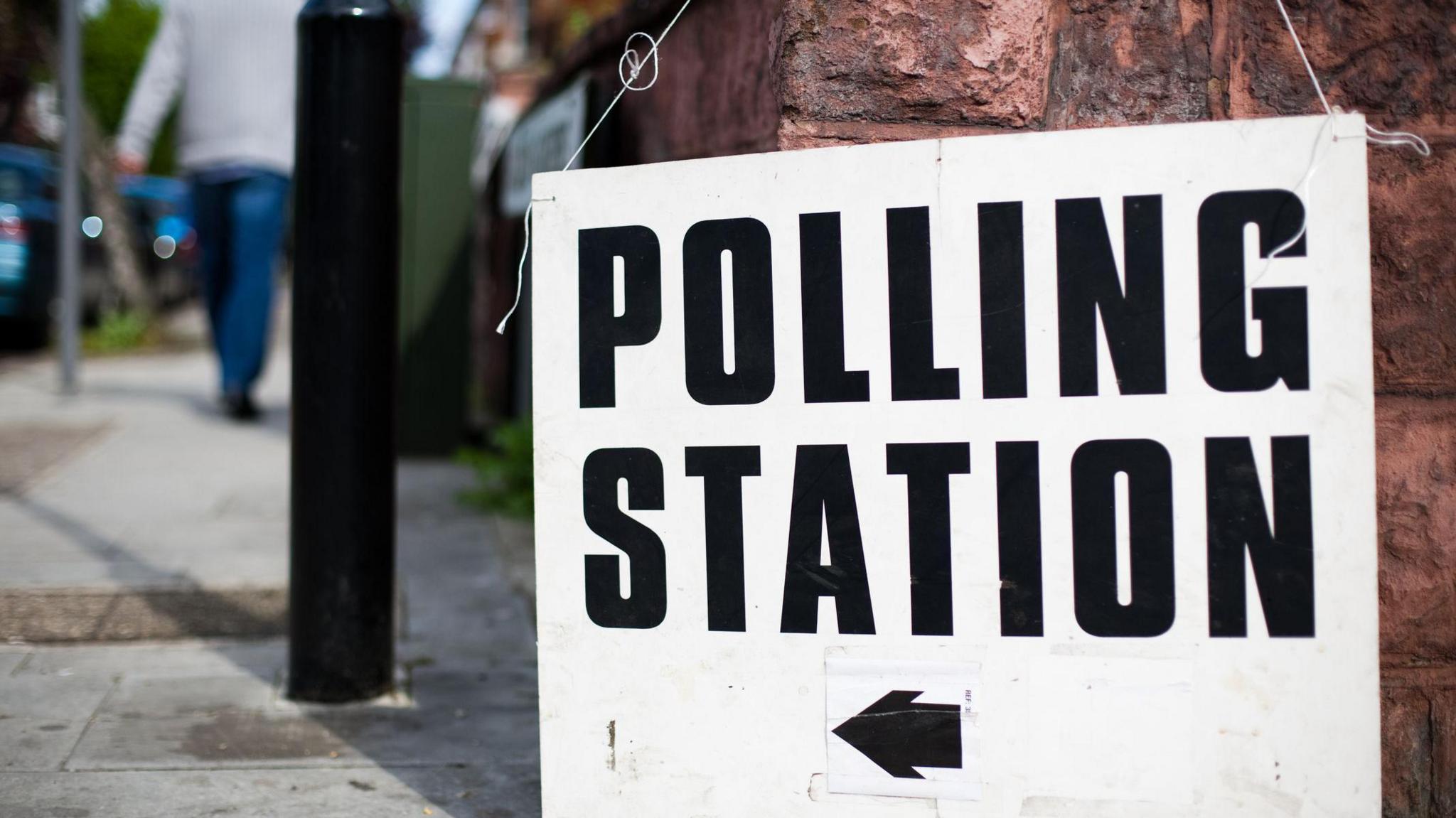Everything you need to know about the Gloucestershire PCC election

The Police and Crime Commissioner is in charge of setting the police budget and how much residents pay for policing
- Published
The person who oversees Gloucestershire's police force is up for election on 2 May.
It will be the fourth time voters have had the opportunity to go to the polls since the Police and Crime Commissioner (PCC) role was created in 2012.
This year's vote will be the first one to use the traditional first-past-the-post voting system after the rules were changed.
What does Gloucestershire's PCC do?
The main role of the PCC is to make sure Gloucestershire Police is doing its job properly.
Having someone who is elected means they are answerable to the people they serve.
The role is also about making sure taxpayers get value for money out of the police. It means they are in charge of setting the police budget and how much people pay for policing through their council tax.
The PCC is also responsible for appointing a chief constable to the police force - currently Rod Hansen - and holding them to account.
Outreach programmes are also within the PCC's remit as they organise things like knife crime prevention workshops to build public trust.
While the job of running of the force is down to the chief constable, the PCC is in charge of setting the overall strategic direction.
Who is standing in the Gloucestershire PCC election?

Four candidates are standing for the role of PCC in Gloucestershire
Three parties are putting up candidates, along with an independent.
Conservative Chris Nelson is the incumbent PCC after winning the last election in 2021. He is seeking a second term.
Martin Surl was the PCC from 2012 until 2021 and won as an independent in his first two elections. This time he is standing under a Liberal Democrat ticket.
Ashley Smith is the candidate for the Labour & Co-operative party and has been a member of Stroud District Council since 2021.
Matthew Randolph is standing as an independent.
Why was the role of PCC created?
Following the 2010 UK general election, both the Conservative and Liberal Democrat parties - who had formed a coalition government - agreed to make policing more accountable.
As a result, they brought in reforms which included an elected PCC for every police authority in England.
The first elections took place in 2012, with two more being held in 2016 and 2021.
Turnout has been historically low but reached a record high of 40.9% last time around.
What is different about this year's PCC election?
This will be the first time the first-past-the-post voting system is used.
Previously, PCCs were elected using the supplementary voting system, which allowed people to vote for a second favourite candidate if they had one.
The winner would then need to pass 50% of the vote, sometimes using second preferences to get them over the line.
The first-past-the-post system is the traditional method used in general and local elections, where the candidate with the most votes wins.
In 2021, the then minister of state for constitution and devolution, Chloe Smith, said the supplementary vote system was "confusing and overcomplicated" while first-past-the-post was "tried and tested".
But critics, such as the Electoral Reform Society, argue that first-past-the-post is the least representative system.
It will also be the first PCC election where people will be required to bring ID to vote.
Related topics
- Published7 May 2024
